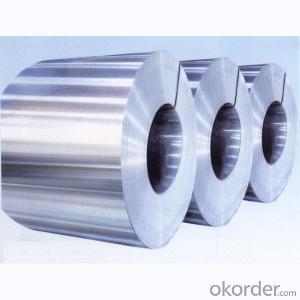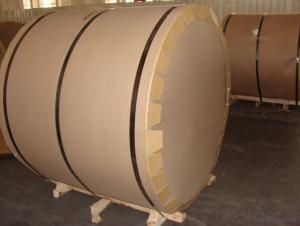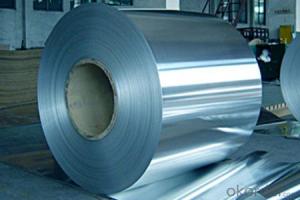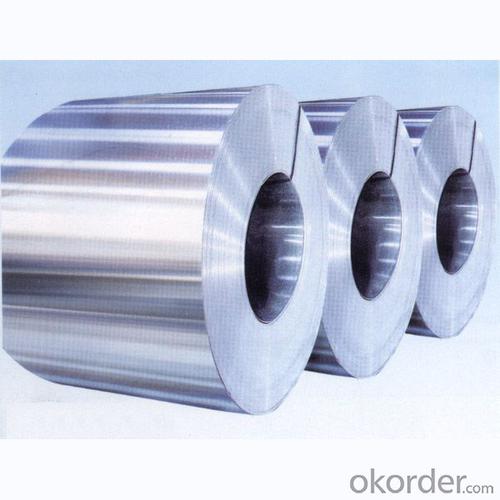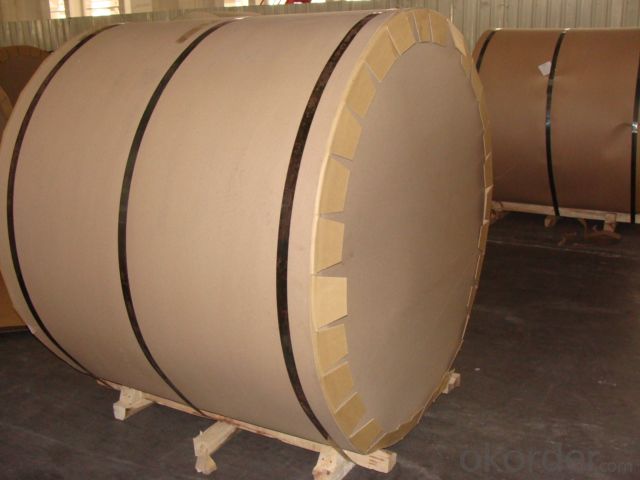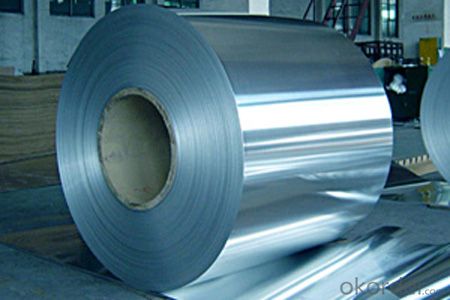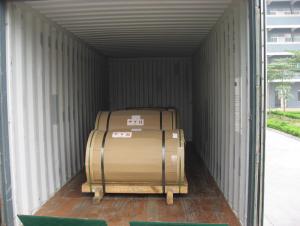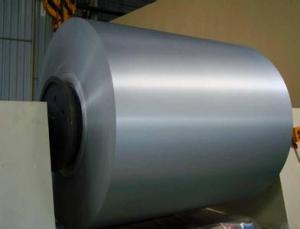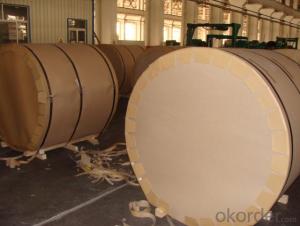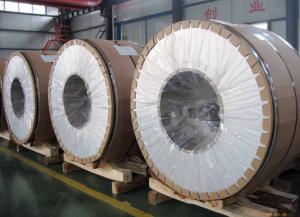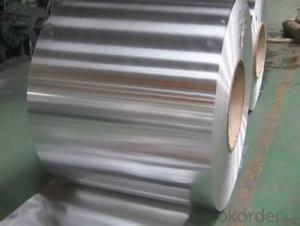Custom Color Coated AA8XXX Mill-Finished Aluminum Coils for Construction
- Loading Port:
- Shanghai
- Payment Terms:
- TT OR LC
- Min Order Qty:
- 5 m.t.
- Supply Capability:
- 10000 m.t./month
OKorder Service Pledge
OKorder Financial Service
You Might Also Like
Specification
1.Structure of AA8xxx Mill-Finished Aluminum Coils Used for Construction Description
AA8xxx Mill-Finished Aluminum Coils Used for Construction has great ductility, heat conductivity, anti-corrosion and moisture resistance properties.
AA8xxx Mill-Finished Aluminum Coils Used for Construction is widely used for electronics, instruments, lighting decoration, packing industry, house decoration, curtain wall, honeycomb-core panel, sandwich panel, aluminum composite panel and aluminum composite pipes.
2.Main Features of AA8xxx Mill-Finished Aluminum Coils Used for Construction
• Superior quality of raw material
• Reasonable and stable chemical composition
• Accurate tolerance
• Goode mechanical property
3.AA8xxx Mill-Finished Aluminum Coils Used for Construction Images
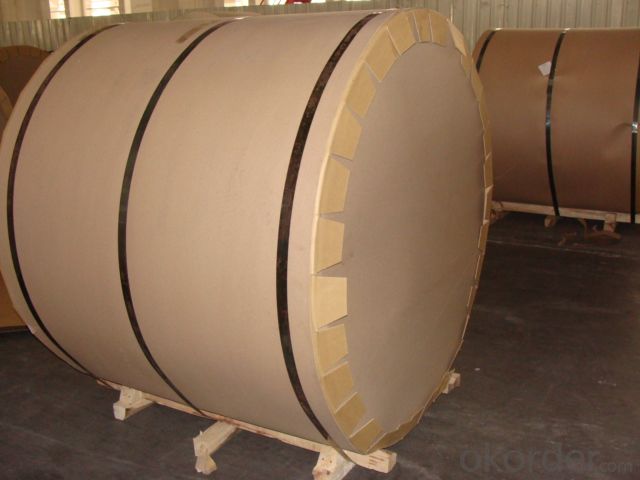
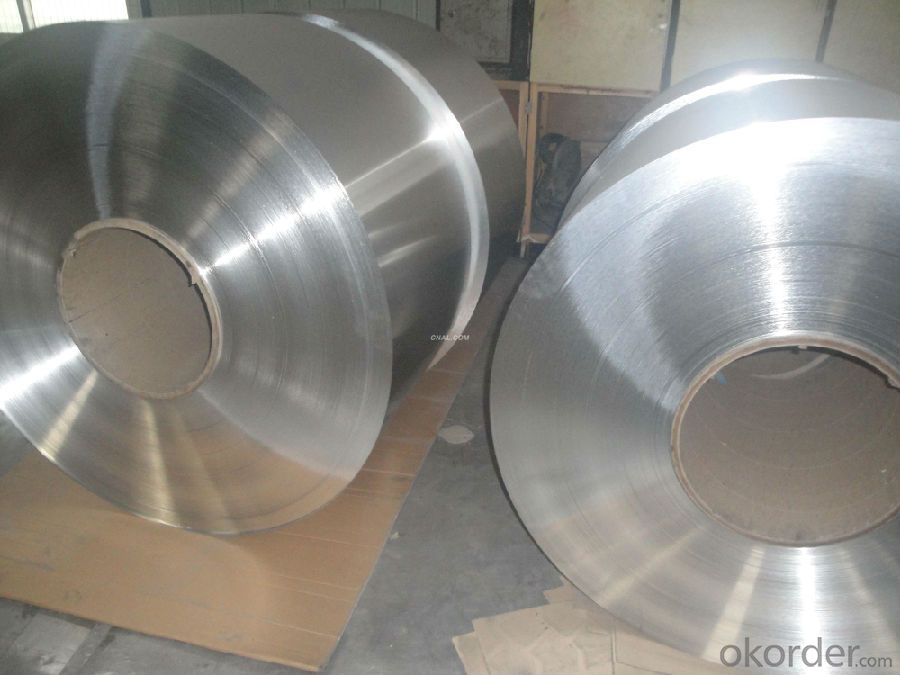
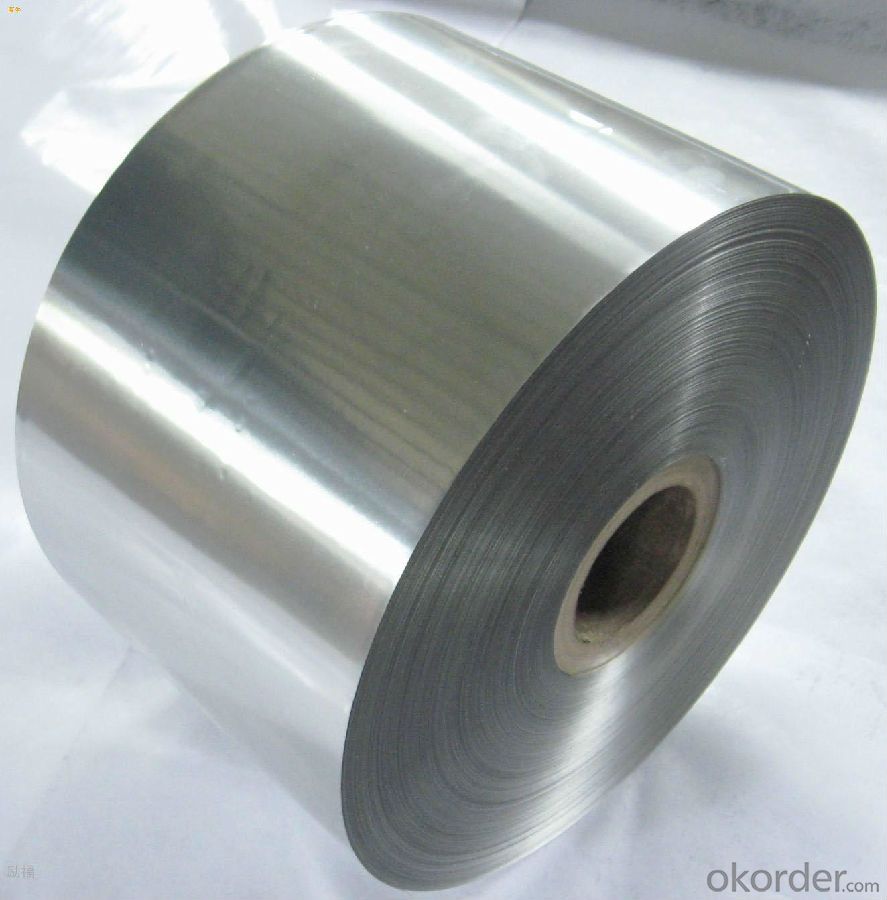
4.AA8xxx Mill-Finished Aluminum Coils Used for Construction Specification
Alloy | AA1xxx (AA1050, AA1060, AA1070, AA1100 etc. |
Temper | H14, H16, H18, H22, H24, H26, H32, O/F |
Thickness | 0.2mm -- 100mm |
Width | 30mm -- 1700mm |
Standard | GB/T 3880-2006,EN,ASTM,JIS |
5. FAQ of AA8xxx Mill-Finished Aluminum Coils Used for Construction
A.How to guarantee the quality?
Customers are welcome to our mill to visit and check the products. Besides, we can arrange a third party to test AA8xxx Mill-Finished Aluminum Coils Used for Construction.
B.When will you deliver the products?
AA8xxx Mill-Finished Aluminum Coils Used for Construction will be delivered within 35 days after receiving advanced payment or original L/C.
- Q: Can aluminum coils be used for seamless gutters?
- Yes, aluminum coils can be used for seamless gutters. Aluminum is a popular choice for seamless gutter installations due to its durability, lightweight nature, and resistance to corrosion. The coils can be easily shaped and formed to create a seamless gutter system that effectively directs rainwater away from the building.
- Q: How are aluminum coils tested for surface roughness?
- Aluminum coils are tested for surface roughness using various methods to ensure they meet the required quality standards. One commonly used method is the use of a surface roughness tester or profilometer. This instrument measures the roughness of the coil surface by running a stylus or probe across the surface and recording the variations in height. The surface roughness tester provides data such as Ra (average roughness), Rz (average peak-to-valley roughness), and Rt (total height roughness). These parameters help assess the surface quality of the aluminum coil and determine if it meets the desired specifications. Additionally, visual inspection is often conducted to detect any visible defects, scratches, or irregularities on the surface. This inspection can be done manually by trained operators or with the assistance of automated systems that use cameras and image analysis algorithms to detect imperfections. Another method used to evaluate surface roughness is the use of laser scanners. These scanners emit laser beams that reflect off the surface of the aluminum coil and are then measured to determine the surface profile and roughness. Laser scanners provide high-resolution, non-contact measurements, making them highly accurate and efficient for assessing surface roughness. Overall, a combination of surface roughness testers, visual inspection, and laser scanners are commonly employed to test the surface roughness of aluminum coils, ensuring they meet the required quality standards for various applications.
- Q: My budgies took at bath in an aluminum pie tin today. At first they bit it just because it was their first time. Should I be worried that they might get poisoned?
- Aluminum cookware/products that are in good condition aren't really a safety issue. That said, I'd be concerned about the birds chewing on the pie tin. Some of those tins can contain zinc which is very toxic to birds. I would suggest using something else just in case.
- Q: Can aluminum coils be used in the production of air conditioning systems?
- Yes, aluminum coils can be used in the production of air conditioning systems. Aluminum coils are widely used in air conditioning systems because of their excellent heat transfer properties and corrosion resistance. They are lightweight, durable, and highly efficient in transferring heat between the refrigerant and the air. Additionally, aluminum coils are more environmentally friendly compared to traditional copper coils as they require less energy during manufacturing and are fully recyclable. Overall, aluminum coils are a popular choice for air conditioning systems due to their performance, durability, and eco-friendliness.
- Q: Can aluminum coils be used in telecommunications infrastructure?
- Yes, aluminum coils can be used in telecommunications infrastructure. Aluminum is a lightweight and durable material that is commonly used in various industries, including telecommunications. The use of aluminum coils in telecommunications infrastructure offers several advantages. Firstly, aluminum is a cost-effective material compared to other metals like copper. It is readily available and has a lower price point, making it a preferred choice for many telecommunications companies. Additionally, aluminum coils are lighter in weight, which makes them easier to handle and install, reducing the overall labor and transportation costs. Moreover, aluminum has excellent electrical conductivity, making it suitable for transmitting data signals in telecommunications networks. Aluminum coils can effectively carry electrical current, ensuring efficient data transmission without any significant loss in quality. This conductivity enables reliable and high-speed communication over long distances. Another advantage of using aluminum coils in telecommunications infrastructure is their resistance to corrosion. Aluminum naturally forms a protective oxide layer when exposed to air, preventing it from rusting or corroding easily. This resistance to corrosion ensures the longevity and durability of the infrastructure, reducing maintenance and replacement costs over time. However, it is important to note that aluminum has a lower tensile strength compared to copper. Therefore, proper engineering and design considerations need to be taken to ensure the structural integrity of the infrastructure when using aluminum coils. Additionally, specific connectors and hardware compatible with aluminum may be required. In conclusion, aluminum coils can be effectively used in telecommunications infrastructure due to their cost-effectiveness, lightweight, electrical conductivity, and resistance to corrosion. Proper planning and design are necessary to ensure the successful implementation of aluminum coils in telecommunications networks.
- Q: This question asks for a comparison of the pros and cons of utilizing steel coils in construction projects.
- <p>Advantages of using steel coils in construction include their high strength and durability, which allows for the creation of robust structures. They are also resistant to corrosion and can withstand harsh weather conditions. Steel coils are versatile and can be easily shaped and welded, making them suitable for a variety of construction applications. Additionally, they are recyclable, contributing to sustainability efforts. Disadvantages include the initial high cost of steel coils compared to some other materials, and the potential for rust if not properly maintained. Steel structures may also require more frequent inspections and maintenance due to the risk of corrosion over time, especially in coastal or humid environments.</p>
- Q: show step by step
- First write out the formula reaction: 4Al + 3O2 --- 2Al2O3 Next, find the number of moles of oxygen gas needed to oxidize 3.42 g of aluminium completely. From the cchemical equation above, 3 mol of oxygen is used to oxidize completely 4 mol of aluminium. Calculate the no. of moles of aluminium used: no. of moles of aluminium used = 3.42 g / molar mass of Al = 3.42 g / 26.98 g mol^-1 = 0.127 mol Use the mole ratio concept to find the no. of moles of oxygen required: no. of moles of oxygen required : no. of moles of aluminium used = 3 : 4 no. of moles of oxygen required / 0.127 = 3 / 4 no. of moles of oxygen required = (3 / 4)(0.127) = 0.095 mol Next, use the gas equation PV = nRT [P: Pressure of gas in Pa; V: Volume of gas in m^3; n: no. of moles; R, gas constant, 8.314 J mol^-1 K^-1; T, Temperature of gas in K] -Convert 0.975 atm to Pa: 0.975 atm = (0.975 x 101325) Pa = 98791.875 Pa -Convert 25 oC to K: 25 oC = (25 + 273) K = 298 K -Substitute into the equation PV = nRT and solve it: (98791.875)(V) = (0.095)(8.31)(298) (98791.875)(V) = 235.2561 V = 235.2561 / 98791.875 = 0.002381 m^3 = (0.002381 x 10^3) L = 2.381 L
- Q: What are the differences among various types of steel wires and their respective coiling techniques?
- <p>Yes, there are differences between different types of steel wires and their coiling methods. Steel wires can be categorized based on their composition, strength, and use, such as carbon steel, stainless steel, and alloy steel wires. Each type has unique properties that affect their coiling methods. For instance, carbon steel wires are strong and ductile, suitable for standard coiling techniques, while stainless steel wires offer corrosion resistance and may require special handling to prevent damage. The coiling methods also vary; some common ones include spool coiling, loop coiling, and pancake coiling. Each method has specific applications and considerations for wire diameter, tension, and storage. Understanding these differences is crucial for selecting the appropriate wire and coiling technique for a given application.</p>
- Q: What are the various applications and purposes of aluminum coil in different industries?
- <p>Aluminum coil is widely used in numerous applications due to its lightweight, corrosion resistance, and high strength. It is commonly used in construction for roofing and siding, in the automotive industry for body panels and heat exchangers, and in the packaging industry for food and beverage cans. Aluminum coil is also utilized in electrical applications such as transformers and wiring, and in the manufacturing of everyday items like foil and cookware. Its versatility makes it a popular material in various industries.</p>
- Q: Is it appropriate to use a hammer to open or unroll an aluminum coil?
- <p>Using a hammer to open an aluminum coil is not recommended. Hammers are designed for striking and can easily damage the aluminum, causing dents or deformation. Instead, use a pry bar or a similar tool to gently unroll the coil without applying excessive force. This will help prevent damage to the aluminum and ensure it remains in good condition for further use.</p>
Send your message to us
Custom Color Coated AA8XXX Mill-Finished Aluminum Coils for Construction
- Loading Port:
- Shanghai
- Payment Terms:
- TT OR LC
- Min Order Qty:
- 5 m.t.
- Supply Capability:
- 10000 m.t./month
OKorder Service Pledge
OKorder Financial Service
Similar products
Hot products
Hot Searches
Related keywords
